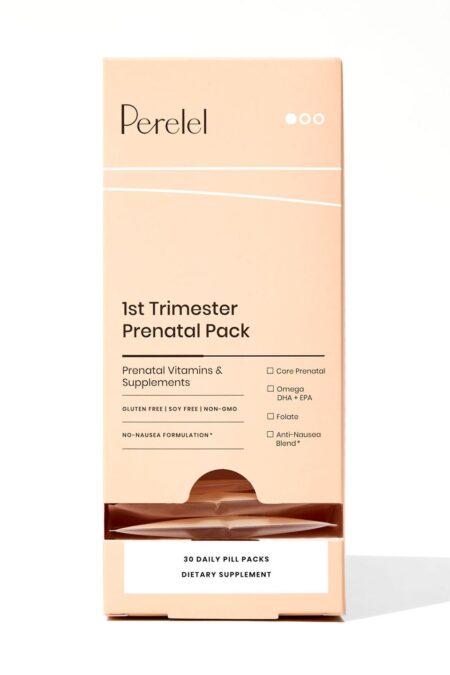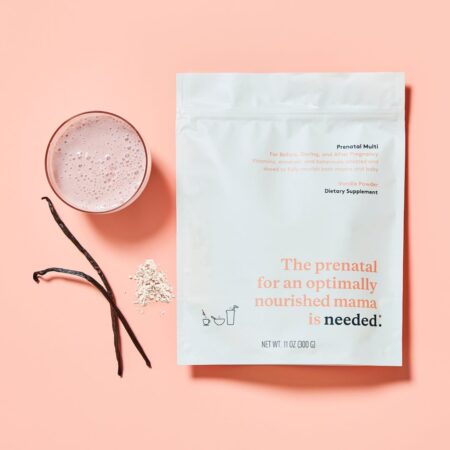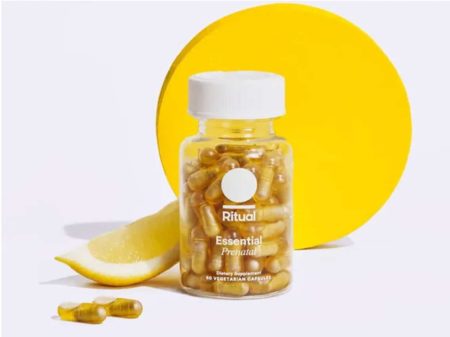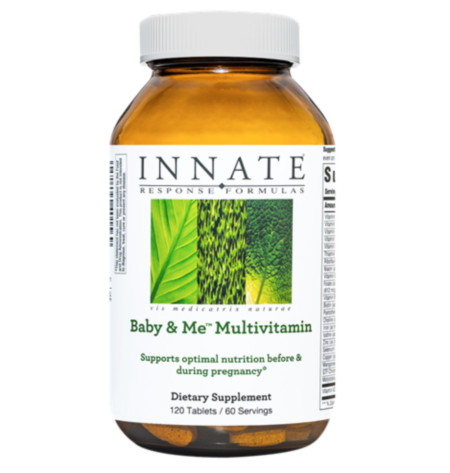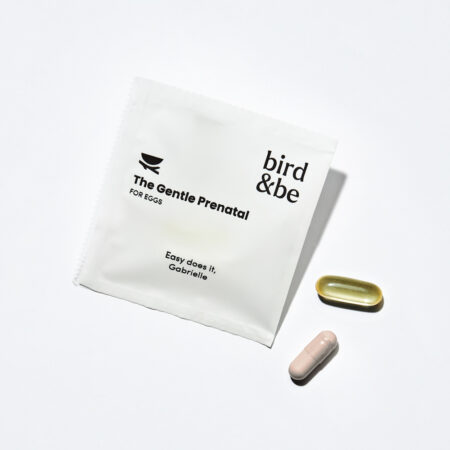I’m a nutritionist: Here are my 5 favorite prenatal vitamins
Plus when to start taking them.

yacobchuk/Getty Images
We independently select and share the products we love—and may receive a commission if you choose to buy.
Maybe you’re just starting out on your fertility journey or you’ve recently discovered you’re pregnant, and now you suddenly find yourself scouring the internet or staring down a wall of brightly colored prenatal vitamins at Target, no clue what to pop in your cart.
It’s daunting trying to decipher which of the myriad options will work for you. Which one will offer the most nutrients for you and your growing baby—without making you feel nauseated or costing a small fortune? (Psst: If you have an HSA or FSA, you can use it to cover the cost of prenatals!)
As a clinical nutritionist and a mom of two, I’ve reviewed the nutrition facts labels and ingredients lists from *a lot* of prenatal vitamins over the years. Find the list of the ones I recommend to my nutrition clients and friends below, but first, let’s discuss what goes into a good prenatal and when to start taking one.
Are prenatal vitamins necessary?
In this day and age, the short answer is yes. Because pregnancy is a state marked by increased nutrient needs (so is breastfeeding, btw), prenatal vitamins can offer extra support in a convenient format.
Prenatals can also help safeguard against any gaps in your diet—say, if you’re dairy-free and aren’t getting a consistent source of dietary calcium, or if you’re in your first trimester and only able to keep down Wheat Thins at the moment. A prenatal can help cover your bases, so it’s good to have one on hand.
Related: Do I need to take a prenatal vitamin?
When to start taking prenatal vitamins
Ideally, you’ll begin taking your prenatal vitamins six to 12 months before you start trying to conceive. If you’re on a faster timeline, even three months before you start trying is best (eggs take three months to mature, so it’ll take that long for you to get results).
You’ll want those higher levels of nutrients circulating for optimum egg quality and implantation success. It’s also key to have high levels of folic acid in your body before egg meets sperm, as folic acid is required to help close the neural tube in fetal development and can prevent neural tube defects. This happens very early in pregnancy—around the 4-week mark, before many people even know they’re pregnant.
But if you’ve already started trying to conceive or are already pregnant, don’t worry. Just start taking a prenatal vitamin as soon as possible—it’s never too late.
What to look for in a good prenatal vitamin
This is my list of must-haves when assessing any prenatal vitamin.
Divided doses
The number one feature to look for in a good prenatal? One that comes in divided doses. The body can only absorb so much of a certain nutrient in one sitting (for example, the maximum amount of calcium the body can absorb at one time is 600 milligrams [mg], so taking a pill with 1,000 mg does you little good).
Divided doses make it easier for your hardworking digestive system to break down all those nutrients. For a two-dose formula, take one pill in the morning and one pill before bed.
Folic acid
Probably the most important factor that sets prenatal vitamins apart from standard daily multivitamins is the amount of folic acid present. It’s important to take increased amounts of folic acid in pregnancy, as it’s hard to get the RDA (600 micrograms) from diet alone. Make sure the supplement you’re looking at has at least 600 mcg, or 400 mcg at the minimum.
A note on forms of folate
You’ve maybe heard of the highly common genetic variant known as MTHFR, which, if you have this variant, it’s widely assumed to mean that your body has trouble converting folic acid into its active form, L-methylfolate. The Centers for Disease Control and Prevention (CDC) says this is a myth: People with MTHFR variants can process all types of folate, including folic acid. Whether the prenatal you choose has folic acid or 5-MTHF, the methylated form, it doesn’t matter.
“Folic acid is the only type of folate shown to help prevent neural tube defects,” says the CDC. “No scientific studies exist that show that supplements containing other types of folate (such as 5-MTHF) can help prevent neural tube defects.”
Methylated B vitamins
Looking for methylated versions of the other B vitamins is your best bet, however—they lessen the load on your digestive system to convert the synthetic vitamins to their active forms. Search for formulas with methylcobalamin (B12) and pyridoxal-5-phosphate (B6).
Easy-to-absorb iron
As iron can be constipating, some prenatals omit iron altogether or have a lower dosage. But pregnancy marks a need for increased iron—and pregnant women are often at risk of iron deficiency anemia. However, too much iron can cause oxidative stress in the body, and you’re likely getting some level from the food you eat. It’s important to work with your birth care provider to get your blood levels tested to ensure you’re getting the supplemental dose you need.
I look for iron in the form of ferrous bisglycinate, which is more bioavailable (more readily absorbed by the body) than the standard ferrous fumarate. As a bonus, it’s non-constipating.
Related: Are you getting enough iron in pregnancy?
A good amount of choline
Choline is essential for fetal brain development, and many prenatal formulations have zero choline or not nearly enough. In pregnancy, the need for choline jumps to about 450 mg per day. Unless you choose a powder (see my favorite from Needed below), your prenatal likely won’t have that much, as choline is a large mineral and hard to fit in pill form.
Still, it’s important that the prenatal you choose has at least some—the remainder can be found in eggs, beef and soybeans, or through a separate choline supplement.
What to avoid in a prenatal vitamin
- One-a-day formulations, for the reasons stated above
- Added dyes or colorants
- Excess levels of vitamin A: Look for vitamin A levels at 100% or under of the recommended dietary allowance (RDA), which is 770 micrograms, as excess levels of retinyl palmitate (the supplemental form) can cause birth defects
- Excess packaging. Look for biodegradable pill packs or recyclable containers to create less waste
These are my 5 favorite prenatal vitamins
A version of this story was published January 28, 2022. It has been updated.
